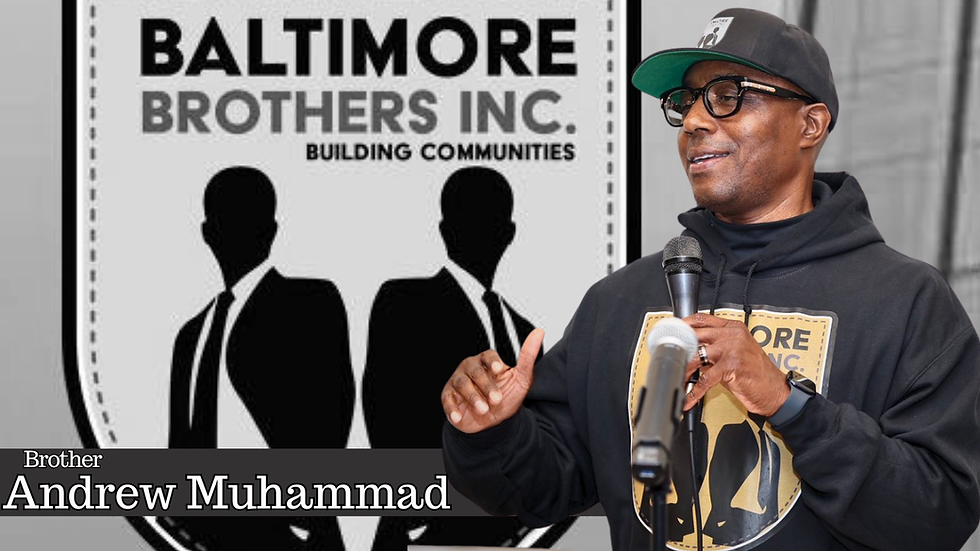Boycotts, Protests, and Power: Why Strategy Matters for Black Economic Survival
- Brother Levon X

- Apr 7
- 3 min read

In recent months, we’ve seen several protests erupt across the country—some led by majority-white communities and others by Black communities. But one thing continues to stand out: when white Americans protest, the police often stand by or even accommodate them. When Black Americans protest—peacefully—they are often met with riot gear, arrests, and brutality.
Take two recent events as examples:
• January 6, 2021, when rioters stormed the U.S. Capitol. Though violent and illegal, many of those involved faced delayed consequences. Some were even later pardoned or released by political allies in power.
• April 5, 2025, a peaceful protest was held by a largely white crowd against administrative policies in a predominantly Black district. No violence. No arrests. No police in riot gear. A calm response.
Now compare that with the Civil Rights Movement of the 1960s and BLM protest. Peaceful Black demonstrators—many of them teenagers—were beaten, jailed, attacked by dogs, and sprayed with fire hoses. Fast-forward to today, and Black political prisoners remain incarcerated, simply for speaking out against systemic injustice—despite the so-called “freedom of speech.”
These two Americas—one for the privileged and one for the oppressed—are still clearly visible in 2025.
Symbolism Isn’t Enough: We Need Strategy
Contributing writer Brother James Shabazz raised an important truth when he wrote:
“Boycotting major retail stores or even foreign-owned neighborhood enterprises is a mere symbolic, knee-jerk reaction by powerless people who have created no business institutions of their own as an alternative.”
In other words, what good is a boycott if we don’t have our own systems in place? Marching is powerful, yes. Boycotting can bring awareness. But without a long-term economic and political strategy, it becomes an emotional release—not a solution.
Building Instead of Begging
Brother Shabazz suggests a different approach:
• Adopt a period of “Spartan restraint”—cut back on unnecessary spending
• Build our own grocery stores and general merchandise outlets
• Support Black street vendors, flea markets, and door-to-door salespeople
These ideas aren’t radical—they’re practical. They’re the same strategies that immigrant communities have used for decades to gain economic independence. It’s not about hating others—it’s about loving ourselves enough to build.
The Problem with Politics-as-Usual
We also need to rethink our political strategy. Every time a new administration comes into power, we see the same old game: good cop, bad cop. One party blames the other. Campaign promises are made, broken, and forgotten. Meanwhile, poor and working-class families—especially Black families—are still struggling to afford homes, safe schools, and decent jobs.
If we don’t change our approach, we’ll stay stuck in the “hamster wheel” of American politics—running hard, but getting nowhere.
We have to ask:
• Are we really strategizing for our future?
• Or are we just trying to save a system that’s crumbling?
• Can we truly expect justice from a system that’s never been just?
So What Should We Do?
1. Think economically – Build Black-owned businesses. Start small if you have to.
2. Be politically independent – Don’t be loyal to any party unless it earns your loyalty.
3. Support local action – Join or create grassroots initiatives in your own neighborhood.
4. Educate the next generation – Teach them history, strategy, and self-respect.
Bringing attention to a problem is important. But solving the problem takes more than signs and slogans. It takes vision, unity, and strategy. We cannot afford to be reactionary. We must become revolutionary in our thinking—not by violence, but by innovation, cooperation, and self-determination.
The time for symbolic gestures is over. The time for building something real is now.
References & Further Reading
1. Michelle Alexander, The New Jim Crow: Mass Incarceration in the Age of Colorblindness, 2010
2. Malcolm X, “The Ballot or the Bullet” Speech, 1964
3. Dr. Claude Anderson, PowerNomics: The National Plan to Empower Black America, 2001
4. Final Call Newspaper, “Political Prisoners: Voices from Behind Bars”
5. Brother James Shabazz, Community Lecture Series, 2024–2025
6. Southern Poverty Law Center, Reports on Civil Rights Violations
7. PBS Frontline, “Two Americas” Documentary Series





Comments